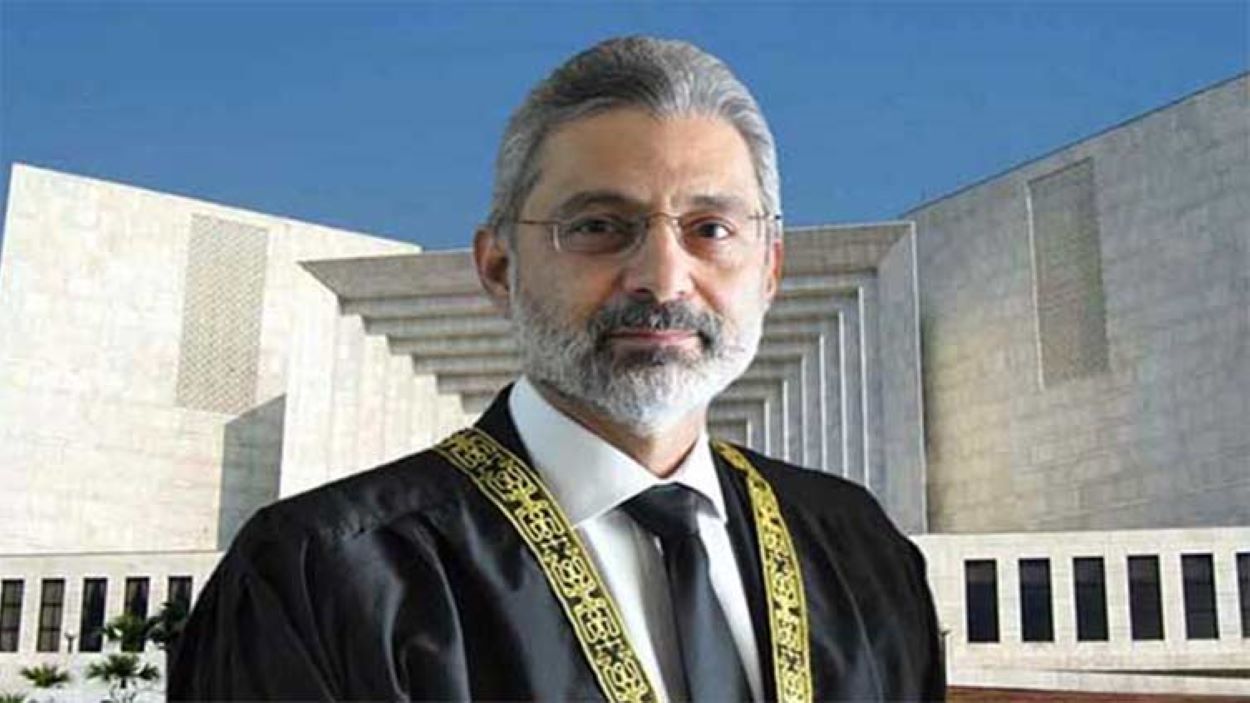The Chief Justice of Pakistan (CJP), Qazi Faez Isa, leads a larger bench in hearing the federal government’s intra-court appeal Supreme Court’s verdict on NAB amendments. The hearing is scheduled on October 31, after the government challenges the annulment of amendments to the accountability law.
On September 15, a three-member bench of the apex court, previously headed by Chief Justice Umer Ata Bandial, overturned certain amendments to the National Accountability Ordinance (NAO) 1999. The majority verdict, citing these changes as contrary to public interest rights within the Constitution, effectively reinstated corruption charges against various public officials. This move, contested by the government, underscores the tension between legislative authority and judicial oversight.
Government’s Stance: Questioning Judicial Reach
Following the decision, the government filed an appeal, invoking Section 5 of the Supreme Court (Practice and Procedure) Act 2023. They argue that the court’s action overstepped its jurisdiction, impinging on the legislative competence of parliament. Specifically, the government asserts that the annulled amendments didn’t infringe on citizens’ fundamental rights, questioning the court’s basis for intervention.
The forthcoming session, with a larger bench including Justice Amin-Ud-Din Khan, Justice Jamal Khan Mandokhail, Justice Athar Minullah, and Justice Hasan Azhar Rizvi, is poised to delve deep into these contentions. Notices have been duly issued to the concerned legal representatives.
The implications of the legal battle extend beyond legal technicalities. After the initial verdict, high-stakes corruption cases, including those against former prime ministers, were promptly reopened by the NAB. The development followed a petition by Pakistan Tehreek-e-Insaf Chairman Imran Khan, asserting the constitutional overreach of the contested amendments.
Among the negated provisions were those limiting NAB’s purview to cases exceeding Rs500 million and permitting plea bargain amounts to be reclaimed post-acquittal. These, along with other stricken amendments, were deemed by the court as violative of various constitutional articles, impacting public welfare by facilitating the misuse of state resources.
As the bench convenes under CJP Qazi Faez Isa, the session is anticipated to be a defining moment in Pakistan’s legal and political landscape, potentially reshaping the accountability mechanism in the country.






